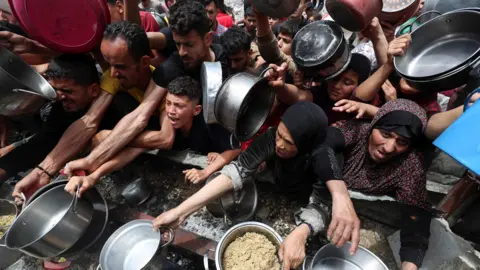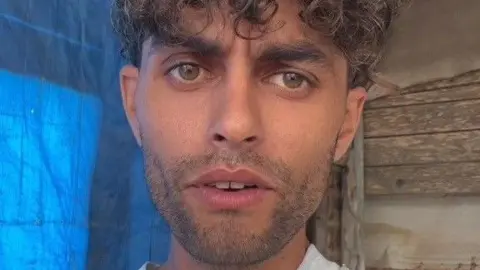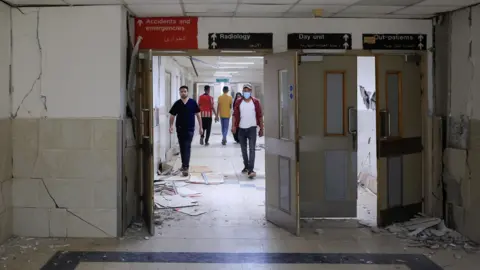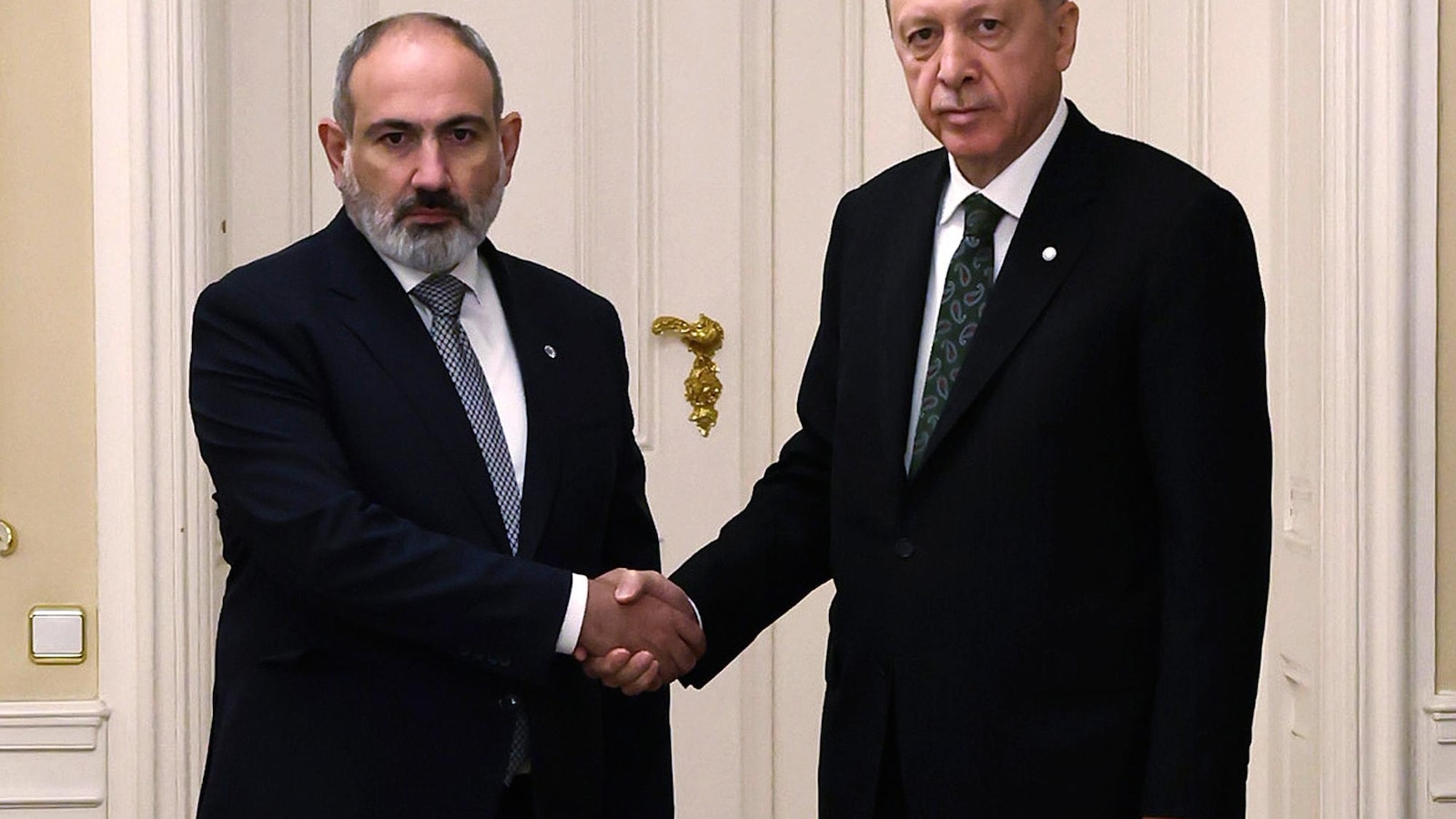ARTICLE AD BOX
Alice Cuddy
BBC News
Reporting fromJerusalem
"Give me some," 6-year-old Ismail said while waiting for food in Gaza
As crowds gathered at a food distribution point in northern Gaza, six-year-old Ismail Abu Odeh fought his way to the front.
"Give me some," he called out.
His bowl was filled with lentils, but as he made his way back, it was knocked out of his hands. He returned to his family's tent crying.
An uncle who had managed to get some food later shared some with Ismail.
The following day, no deliveries of water or food arrived at the displacement camp where he lives, located in a school in Gaza City, and the people gathered there were left with empty bottles and bowls. Ismail cried again.
The BBC has spent the past two days speaking to people across Gaza, as Israel ramps up its military action and continues a more than 10-week total blockade on food, medical supplies and other aid.
There are mounting warnings from the United Nations and others that the enclave is on the brink of famine.
Ismail cried after no food or water was delivered to the camp where he lives
The Israeli government insists there is "no shortage" of food in Gaza and that the "real crisis is Hamas looting and selling aid".
Government ministers have described the stoppage of aid as a "main pressure lever" to secure victory over Hamas and get all the hostages out. There are still 58 hostages in Gaza, up to 23 of whom are believed to be alive.
Israel does not allow international journalists free access to Gaza, so our communication has been over phone calls and WhatsApp messages, and through trusted Palestinian freelancers who live in the territory.
Those who spoke to the BBC described their struggle to find even one meal a day, with food kitchens shutting down because of the shortages and few items in the markets. Items that are still available are at highly inflated prices that they cannot afford, they said.
A man running one of the remaining food kitchens in Gaza said he was operating "day by day" to find food and oil. Another man we spoke to said the kitchen he volunteered at had closed 10 days ago when supplies ran out, describing it as a "disastrous feeling".

 Reuters
Reuters
One 23-year-old woman living in north Gaza said "dizziness has become a constant feeling" as well as "general weakness and fatigue from the lack of food and medicine".
Adham al-Batrawi, 31, who used to live in the affluent city of al-Zahra but is now displaced in central Gaza, said hunger was "one of the most difficult parts of daily life".
He said people had to get "creative just to survive", describing through WhatsApp messages how he would over-cook pasta and knead it into a dough before cooking it over a fire to create an imitation of bread - a staple in the Palestinian diet.
"We've invented ways to cook and eat that we never imagined we'd need," he said.
He added that the one meal a day he had been eating recently was "just enough to get us through the day, but it's far from enough to meet our energy needs".


Half of Adham al-Batrawi's family home in al-Zahra was destroyed, he told the BBC
Elsewhere in central Gaza, in the city of Deir al-Balah, nurse Rewaa Mohsen said it was a struggle to provide for her two young daughters, aged three and 19 months.
She said she had stockpiled nappies during the ceasefire earlier this year but that these would run out in a month.
Speaking over WhatsApp on Thursday, she said her daughters had grown used to the sounds of bombing that would ring through the apartment. "Sometimes I feel more afraid than them," she wrote, adding that she would distract her children with colouring books and toys.
The next day, over voice note she said evacuation orders had been issued for her area before an Israeli strike hit a nearby building.
When she returned to her home to "clean the mess", she found that the doors and windows had been blown off.
"Thank God that I am still alive with my girls," she said.
When asked if she would stay in the apartment, she responded: "Where else will I go?"
Across Gaza, medics described the impact of the blockade on medical supplies and said they no longer felt safe at work following Israeli strikes targeting hospitals.
Nurse Randa Saied said she was working at the European Hospital in Khan Younis when it was hit in an Israeli strike this week, describing it as a moment of "pure terror and helplessness".
Israel has long accused Hamas of using hospitals as covert bases and for weapons storage, which the group denies.
The European Hospital is no longer operating, but Randa said staff and patients had moved to the nearby Nasser Hospital.
"Our patients are mothers, sons, daughters and siblings - just like us. We know deep in our hearts that our duty must not end, especially now when they need us the most," she said.

 Reuters
Reuters
Images from the European Hospital in Khan Younis show piles of rubble on the floor
Staff at Nasser and other hospitals in Gaza told the BBC the blockade meant they were running short on basic supplies like painkillers and gauze, and had to shut down some services.
The US has confirmed that a new system for providing humanitarian aid to Palestinians in Gaza through private companies is being prepared, with Israeli forces set to secure the centres' perimeters. The United Nations has criticised the plan, saying it appears to "weaponise" aid.
Back in Gaza City, Ismail's father said he struggled with no longer being able to provide for his six children.
"My children go to sleep hungry," he said. "Sometimes I sit and cry like a little kid if I don't manage to provide food for them."

 1 month ago
108
1 month ago
108








 English (US) ·
English (US) ·